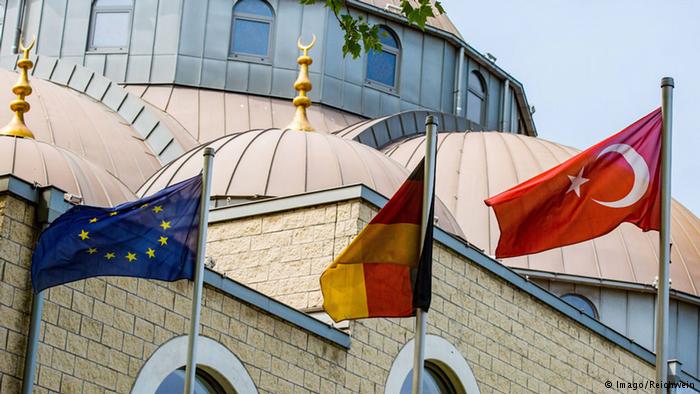Germany wants to cut the financial and personal ties of German Muslims of Turkish origin to Ankara in an effort to reduce foreign influence, the Financial Times (FT) reported on Sunday.
Markus Kerber, a top civil servant in the German Ministry of Interior, told FT that they need “an Islam for German Muslims that belongs to Germany,” adding: “That does not mean that we want to develop a new theology. It means that German Muslims have to decide: what kind of Islam do we want here?”
Kerber is the official in charge of relations between the government and the country’s 4-million-strong Muslim community. He said in the interview with FT that Germany’s goals are to “reduce foreign influence — both financial and personal — on Germany’s Muslim community; to ensure that imams preaching in Germany are trained in Germany; and to ensure that Muslims are better integrated into German society when it comes to issues of everyday life.”
According to the report, integrating the German Muslim community and combating Islamist extremism have emerged as important challenges for policymakers in Berlin especially after the 2015-16 refugee crisis, which led to the arrival of more than 1 million migrants from Muslim countries such as Syria and Afghanistan.
At the same time, a marked rise in political tensions between Berlin and Ankara has tested the loyalties of the German-Turkish community, unsettling an established Muslim community that has made Germany its home since the early 1960s, the FT story further said.
According to the report, Turkey continues to play an outsized role in the affairs of Germany’s Muslim community, thanks largely to the Turkish-Islamic Union for Religious Affairs (DİTİB), the largest Islamic organisation in the country. DİTİB, which is a branch of Turkey’s own state directorate for religious affairs, runs 900 of the 2,400 mosques in Germany. Its imams are sent from Turkey, mostly preach in Turkish and are paid by the Turkish government.
“The Turkish government has to accept that the days when they had total control over German mosques run by DİTİB are over,” Kerber said. “I told officials in Ankara: your Turks are also our Turks now. Get used to it.” German Muslims, he added, had the right to be preached to in German and to have imams who were familiar with the realities of daily life in Germany. “Take the question of whether piercings and tattoos are compatible with the teachings of the Koran. If an imam cannot provide answers to questions like these, then there is a real danger that young Muslims will turn to an imam on the Internet — and that can quickly lead into dark waters.”
The German government’s desire to play a larger role in the development of Islamic life in Germany has been welcomed by liberal Muslim scholars but sparked criticism from other sections of the Muslim community. A conference of Islamic scholars organized by DİTİB this year warned in a joint statement that any attempt to introduce a “German Islam” or “European Islam” stood in “contradiction to the universality of Islam, which illuminates all ages and places at the same time.”


